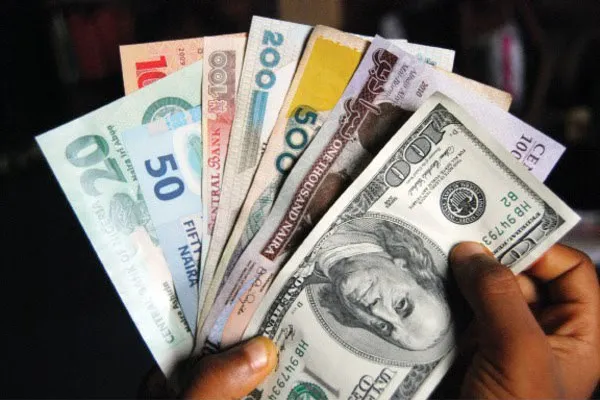Introduction
Money transfer has come a long way from the days of bartering goods and services. In today’s interconnected world, the ability to transfer money across borders and currencies is a fundamental part of our global economy. This article will explore the evolution of money transfer methods and the role of technology, highlighting how it has become more accessible, efficient, and secure over the years.
I. The Age of Barter
Long before the concept of money existed, people engaged in barter systems to trade goods and services. While bartering allowed for the exchange of value, it had significant limitations. The lack of a standardized unit of value made transactions cumbersome, and the double coincidence of wants meant that both parties had to desire what the other offered.
I. The Significance of Money Transfer Services
Money transfer services play a crucial role in today’s interconnected world. They enable individuals and businesses to move funds seamlessly, regardless of geographical boundaries. Whether you are an expatriate sending remittances to your home country, an entrepreneur making international payments, or a traveler seeking currency exchange, reliable money transfer services are essential for financial transactions of all kinds.
III. The Rise of Banking and Checks
With the establishment of banks, people had a safe place to store their money. In the late 17th century, the first checks emerged as a way to transfer funds from one bank to another. This innovation revolutionized money transfer, making it more convenient and secure.
V. Factors to Consider When Choosing a Money Transfer Service
- Cost and Fees
- Compare the fees associated with different money transfer services. Some charge a percentage of the transaction amount, while others have flat fees. Additionally, consider exchange rates, as some services offer more favorable rates than others.
- Speed and Accessibility
- Determine how quickly you need the funds to reach the recipient. While some services offer near-instant transfers, others may take several business days. Accessibility is also vital, as you want a service that is easy for both you and the recipient to use.
- Security and Reliability
- Ensure that the money transfer service you choose is secure and reliable. Look for encryption and authentication measures to protect your financial information. It’s also essential to select a service with a good track record and positive customer reviews.
- Geographic Coverage
- Consider whether the money transfer service provides the geographic coverage you need. Some services may have limitations on certain countries or regions.
IV. Telegraphs and Money Orders
The 19th century saw the advent of telegraph systems, which enabled people to send messages instantly over long distances. This technology also paved the way for money orders, which allowed individuals to send funds by wire transfer. While this was a significant step forward, it was still relatively slow and involved manual processes.
V. The Birth of Electronic Funds Transfer (EFT)
The mid-20th century brought the introduction of Electronic Funds Transfer (EFT), a system that allowed for the electronic movement of money between accounts. This development laid the foundation for modern-day money transfer systems, making it faster and more efficient to transfer funds within a country.
VI. The Globalization of Money Transfer
As the world became increasingly globalized, the need for efficient cross-border money transfers grew. Banks and financial institutions started offering international wire transfer services, but these often came with high fees and slow processing times. The demand for more accessible and cost-effective options led to the rise of money transfer companies and services like Western Union and MoneyGram.
VII. The Digital Revolution
The 21st century witnessed a digital revolution in the world of money transfer. Online banking, mobile apps, and digital wallets made it possible for individuals to send and receive money with just a few clicks. These digital platforms streamlined the process, eliminated geographical barriers, and reduced transaction costs.
VIII. FinTech Innovations
The emergence of Financial Technology (FinTech) companies further disrupted the money transfer industry. FinTech firms like PayPal, Venmo, and TransferWise (now Wise) leveraged technology to offer faster, cheaper, and more transparent cross-border money transfer services. They used peer-to-peer networks and innovative currency conversion methods to undercut traditional banks and remittance services.
IX. The Role of Cryptocurrency and Blockchain
One of the most significant developments in money transfer is the emergence of cryptocurrencies and blockchain technology. Bitcoin, Ethereum, and other cryptocurrencies offer decentralized and borderless solutions for transferring funds. Blockchain, the underlying technology, ensures transparency, security, and immutability of transactions. These innovations have the potential to revolutionize the financial industry by making cross-border money transfers faster, more secure, and cost-effective.
X. The Future of Money Transfer
Looking ahead, the future of money transfer seems poised for even more innovation. Central banks around the world are exploring the idea of Central Bank Digital Currencies (CBDCs), which could provide a secure and government-backed form of digital money. Additionally, advancements in artificial intelligence and machine learning are expected to enhance fraud detection and risk management in money transfer systems.In an era of global connectivity, the need for efficient and reliable
The Significance of Money Transfer Services
money transfer services has never been greater. Whether you need to send money to family members in another country, pay for international transactions, or simply split the bill with friends, having access to a variety of money transfer services is essential. This article will explore the world of money transfer services, highlighting their importance, the different options available, and how to choose the right one to meet your needs.
Conclusion
Money transfer has evolved significantly throughout history, from the barter system to the digital age of blockchain and cryptocurrencies. Each advancement has brought greater efficiency, accessibility, and security to the process. As technology continues to evolve, we can expect even more innovative solutions that will make money transfer faster, cheaper, and more convenient for people all over the world. The future of money transfer is undoubtedly an exciting one, driven by the relentless march of technology and the quest for financial inclusion on a global scale.Money transfer services have evolved significantly over the years, offering a wide range of options to cater to diverse needs. From traditional banking methods to innovative FinTech solutions, individuals and businesses have more choices than ever before. When selecting a money transfer service, it’s essential to weigh factors like cost, speed, security, and accessibility to find the right fit for your specific requirements. With the right service, you can confidently navigate the world of money transfers, ensuring that your funds reach their destination securely and efficiently.




